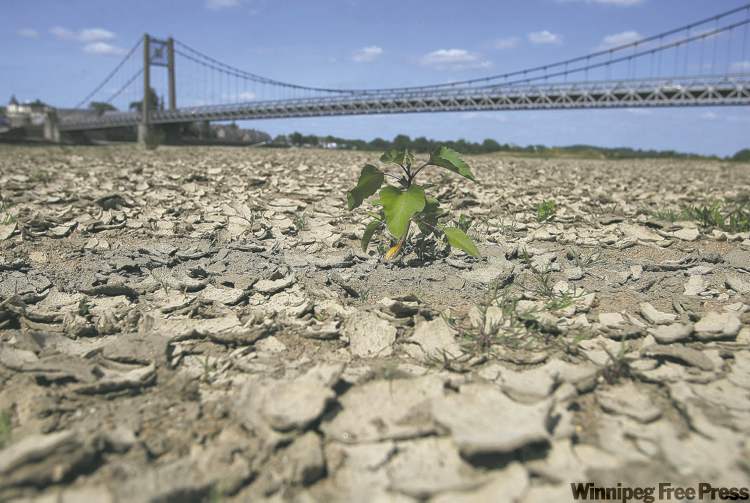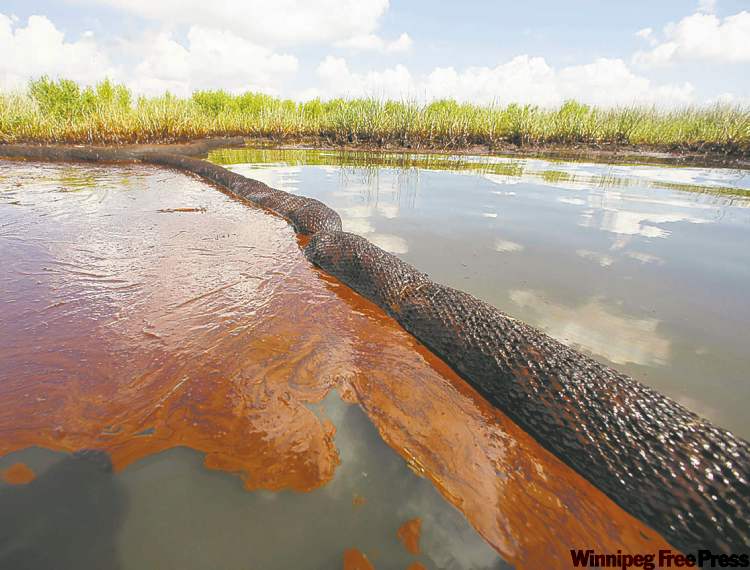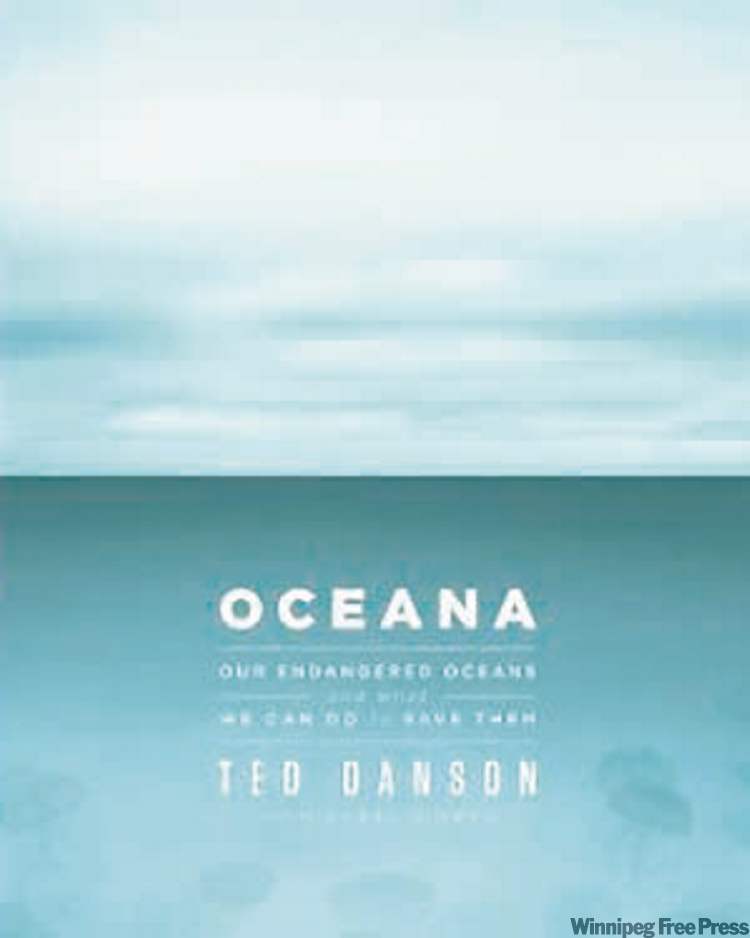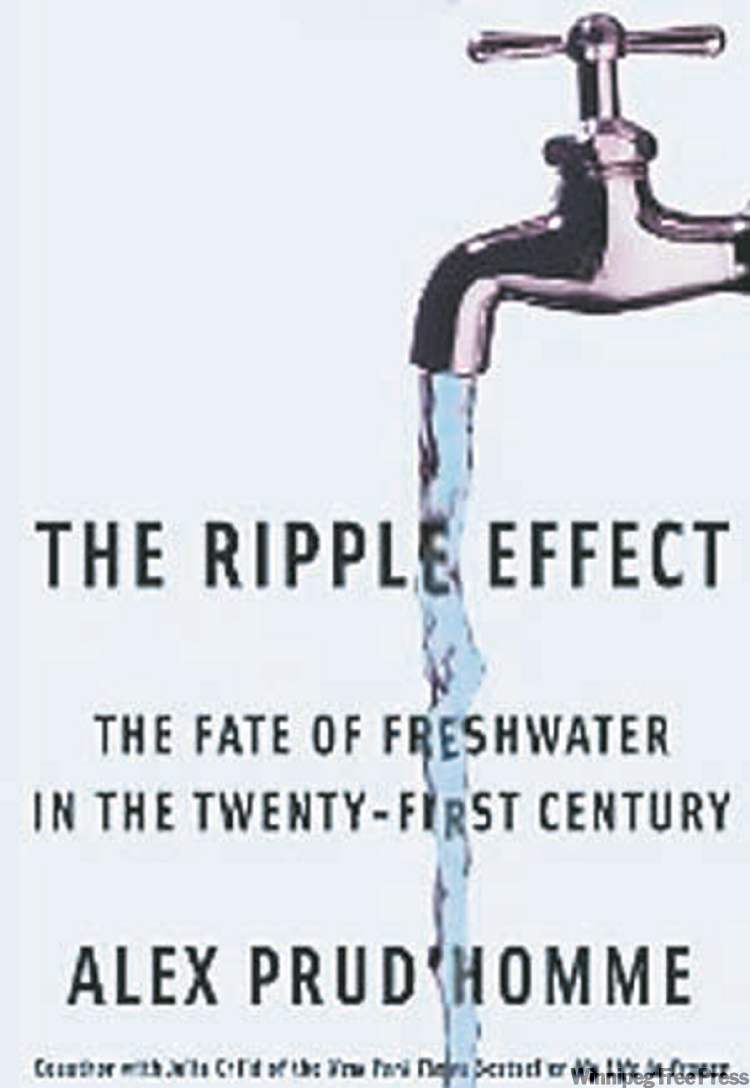Writers look at the ripple effect of water
Advertisement
Read this article for free:
or
Already have an account? Log in here »
To continue reading, please subscribe:
Monthly Digital Subscription
$1 per week for 24 weeks*
- Enjoy unlimited reading on winnipegfreepress.com
- Read the E-Edition, our digital replica newspaper
- Access News Break, our award-winning app
- Play interactive puzzles
*Billed as $4.00 plus GST every four weeks. After 24 weeks, price increases to the regular rate of $19.00 plus GST every four weeks. Offer available to new and qualified returning subscribers only. Cancel any time.
Monthly Digital Subscription
$4.75/week*
- Enjoy unlimited reading on winnipegfreepress.com
- Read the E-Edition, our digital replica newspaper
- Access News Break, our award-winning app
- Play interactive puzzles
*Billed as $19 plus GST every four weeks. Cancel any time.
To continue reading, please subscribe:
Add Winnipeg Free Press access to your Brandon Sun subscription for only
$1 for the first 4 weeks*
*$1 will be added to your next bill. After your 4 weeks access is complete your rate will increase by $0.00 a X percent off the regular rate.
Read unlimited articles for free today:
or
Already have an account? Log in here »
Hey there, time traveller!
This article was published 02/07/2011 (5210 days ago), so information in it may no longer be current.
The destructive power of water has surged back into the consciousness of Canadian and American prairie dwellers this year. Among the shattering consequences of the worst flooding on record are evacuated homes, destroyed cottages and ruined farmland.
“Floods hold a special, dark grip on the human imagination,” Alex Prud’homme asserts in his captivating account of all things aqueous, The Ripple Effect: The Fate of Freshwater in the Twenty-First Century.
Prud’homme, an American journalist, has written a thinking person’s guide to water, from the extremes of terrifying floods, threatening droughts and poisonously polluted rivers and lakes, to life-giving essence.

Neither Cassandra nor Pollyanna, Prud’homme, co-author with his great-aunt Julia Child of her memoir My Life in France, cooks up a hearty but easily digestible multi-course serving of facts and theories about the essential liquid.
The book proves particularly nourishing in comparison to a glossy but suspect effort by American TV actor Ted Danson, Oceana: Our Endangered Oceans and What We Can Do to Save Them.
Danson’s screed, co-written with legitimate author Michael D’Orso, substitutes emotion for reason, mashing together pictures of unidentified people, places and sea life with manipulative and frequently invalid graphs and charts.
More on that later. Back to the good stuff: Prud’homme tells the story of water through people who study and work with it and through his experiences travelling important waterways with those experts.
His personal life becomes political, provoked by the century-long despoiling of Newtown Creek, in his Brooklyn, N.Y., neighbourhood, by oil companies that dumped their wastes into it.
The book includes plenty of notes of the original sources of information, and the author expertly employs journalistic techniques such as compelling quotes and vivid descriptions.

“At 200 feet down, the hole at the surface through which we could see the blue sky was reduced to the size of a quarter, and the light was growing murky. … We filed out into a world of smudged light, ankle-deep water, and soft grey mud. We were 580 feet underground, inside New York City’s most urgent water supply project.”
An overlay of literary references including Lord Byron, Antoine de Saint-Exupery and John Steinbeck elevates the tone of the book.
Its gentle but persuasive theme is that, although greedy and ignorant or indifferent humans continue to misuse and pollute water, it is renewable, unlike oil.
Nations, particularly the United States where Prud’homme focuses, should create centralized authorities to set quality standards, prevent costly and wasteful wars over access to fresh water and clarify responsibility for preventing disasters such as last year’s massive oil spill in the Gulf of Mexico.
But his citation of the authoritarian regime of Singapore, a small country, as a model for such centralized control will not necessarily resonate in the large, argumentative U.S., where the rights of the individual against the collective frequently rise to the level of fetish.

Individuals, though, can use water more wisely and sustainably by taking simple measures such as drinking tap water rather than buying imported bottled water and installing low-flow toilets.
Oceana also recommends individual actions, but they are mostly on the level of “Support marine conservation organizations” and “Contact your U.S. senators and representatives.”
This meretricious volume is rich in pictures but destitute in context, such as when and where the pictures were taken, the identities of the people photographed and explanations of what they are doing.
Worse, many of the colourful graphs and charts lack any scale that would grant them meaning. Others are truncated so that what they purport to show is much more dramatic than realistic.
Danson provides his own cheers by including plenty of pictures of himself, from childhood through post-stardom.
Ripple Effect, crafted from well-chosen words rather than suspect images, guides the reader on a much more fulfilling exploration of the most important liquid in our world.

Duncan McMonagle teaches journalism at Red River College and writes the Information Tsunami blog at http://duncanmcm.blogspot.com



